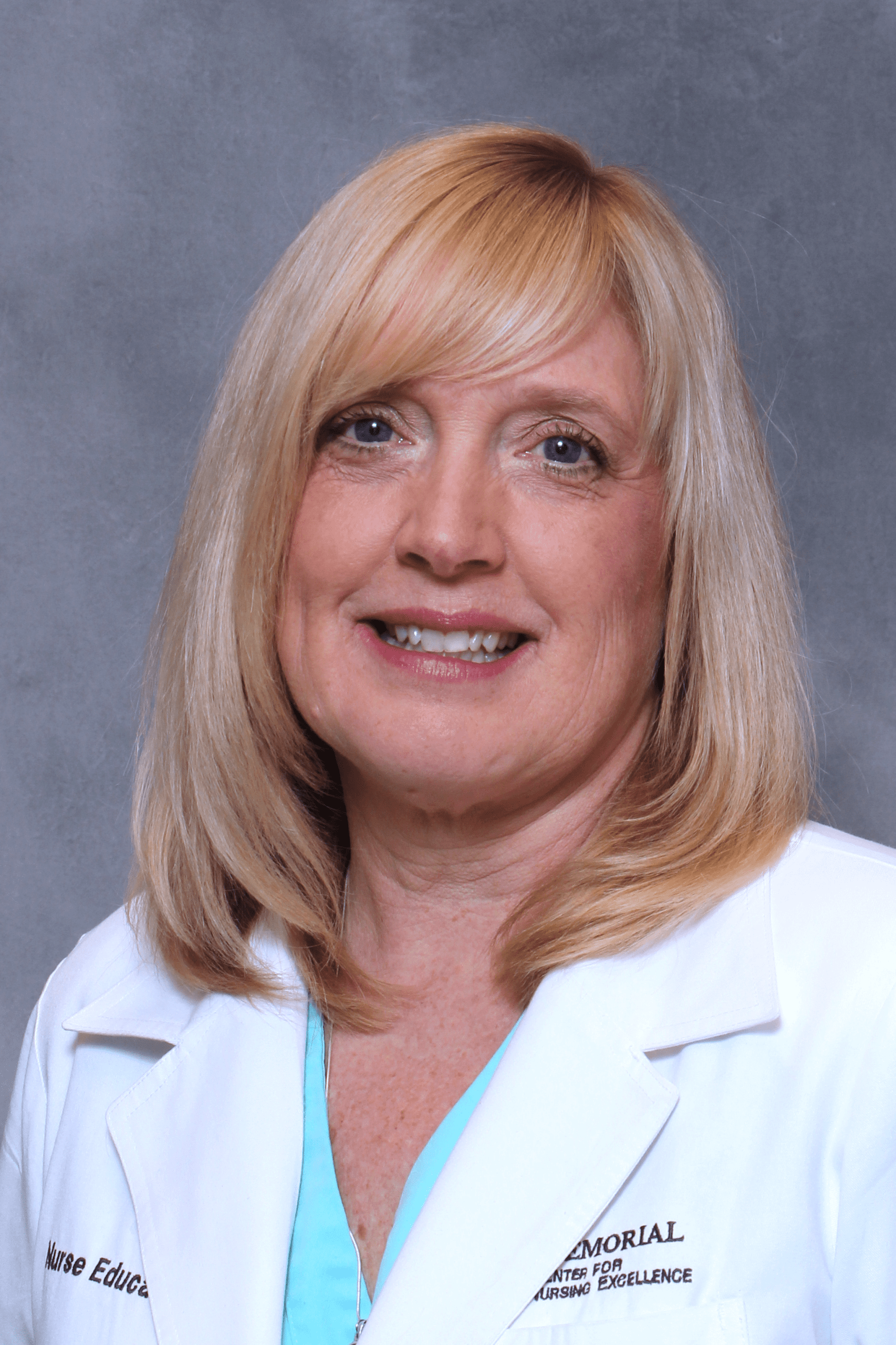BJC Utilizing Memorial as Nurse Mentor Pilot Program Location
Even before the COVID-19 pandemic propelled hospitals into a staffing crisis, health care was on the brink of a severe nursing shortage.
The average age of nurses at BJC continues to increase, almost one in four nurses currently are making plans to retire within the next five years and new nurses with less than one year of experience often leave an organization due to a perceived lack of support, appreciation, and recognition.
In response to these circumstances, BJC has launched a pilot mentorship program for nurses entering the one-year Nurse Residency program at Barnes-Jewish Hospital, Christian Hospital, Memorial Hospital Belleville and Missouri Baptist Sullivan Hospital, with plans to expand system-wide. These four locations are within the current pilot program, but any nurse within the BJC system can sign up to be a mentor. The mentorship program will focus on developing and retaining the next generation of BJC nurses.
“Our goal is to create connectedness with our new team members. We want to ensure everyone feels they belong here, building a strong foundation for the program through meaningful relationships,” says Martha Christoff, BJC program care director and leader of the pilot mentorship program.
 Joanne Sehr, clinical education specialist and registered nurse, is Memorial’s nurse mentor program champion.
Joanne Sehr, clinical education specialist and registered nurse, is Memorial’s nurse mentor program champion.
“Being a nurse mentor is a way that nurses can share their passion for their profession, contribute to the practice of nursing, and develop their own leadership skills as well as develop the other person’s skills,” Sehr said. “It’s a great opportunity to share your experience and wisdom over time and help new nurses navigate the profession.”
Sehr said that a strong mentor program, a strong preceptor program, and a strong RN residency program combined has a huge impact on the graduate nurse experience and retention.
“This program provides an opportunity for an experienced nurse to share a caring and healthy relationship with a novice nurse by enhancing and supporting their professional growth, knowledge, critical thinking skills, and problem-solving abilities while assimilating them into the culture of Memorial Hospital,” Sehr said.
Sehr expressed that she didn’t have a mentor when she first became an RN in 1984, but she does now.
“I think it would’ve been helpful,” she said. “It would’ve been nice to have somebody who had more experience to guide us. With HIPAA, you can’t really talk to a lot of people about work. Having someone who is ahead of you in nursing, who has been there, done that, who can understand and can listen, in nursing is very helpful.”
Kelly Crawford, MSN, RN, CNOR and assistant nurse manager in ambulatory surgery at Memorial, said she did have a nurse mentor starting out, and that is precisely why she wants to also become a mentor for new nurses.
“I was lucky enough to be on a team with a more experienced nurse who took me under her wing,” Crawford said. “She was there to celebrate my successes, guide me through my mistakes, and sit next to me as I decompressed after particularly difficult situations.”
Crawford said having a mentor when she was new to nursing helped her realize that she wasn’t alone, and she had people she could rely on.
“She taught me how to learn from mistakes and find the joy in the everyday,” she said. “Her compassion and guidance are the reasons I stuck it out through the tough times and remain proud to be a nurse. By joining the Nurse Mentor Program, I hope to provide that same support to nurses who are entering the field at a time of great need, high acuity, and ever-changing circumstances.”
Clinical Education Specialist and RN at Memorial, Courtney Barlow, said she was first mentored by an ER charge nurse who was able to help her in multiple ways.
“I felt I had a safe space to discuss things that happened during my shift that I missed at first or needed more help understanding,” Barlow said. “I felt comfortable asking questions among some of my nursing peers but felt that asking the wrong question would impact how they thought of me as a new nurse. With my mentor, I could ask questions without fear of judgement because she knew I was new and learning this role.”
Barlow joined as a nurse mentor to give back to the next generation of nurses, so that they, too, can have a relationship with a peer to discuss feelings, anxieties, and uncertainties that accompany becoming a new nurse.
“Being a mentor means I can give them support as their peer and inform them of the various resources available,” she said. “I want them to feel the support of someone who has gone through the transformation process and offer them reassurance as they find their way.”
Sehr said she’s really excited about the new and innovative matching technology they’re using to pair up mentor with mentee. For example, if a mentee is seeking help with growth, the program would pair them up with a mentor who marked that as their strength. Once there has been a match, goals are set between the pair. Within the learning center, there is a goal tracker, career path monitor, informational resources, and video tutorials.
“I think it’s a great program,” Sehr said. “I find the reward in it being a way to give back to the profession. Listening and sharing experiences is very important. We’re helping them grow their path. Most of our new graduate nurses come in now with a career goal in mind. It’s important to them and to the organization that you’re helping them achieve their goals.”
Want to join Joanne, Kelly and Courtney to be part of the supportive team at Memorial? Search openings here.


